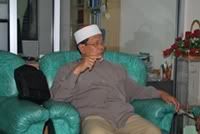CAIRO — Egyptians on Thursday braced for the ninth weekend of protests
against the military’s ouster of the country’s president as the looming
possibility of Western airstrikes against Syria injected a new element
of volatility onto the streets.
The degree of participation and violence at the protests expected on
Friday will be a pivotal test of the effectiveness of the new
government’s crackdown on the supporters of the ousted president,
Mohamed Morsi, especially his Islamist allies in the Muslim Brotherhood.
Small protests in certain neighborhoods of Cairo, the capital, and
larger demonstrations in other Egyptian cities have continued every
night since Mr. Morsi’s ouster on July 3, despite an evening curfew, the
suspension of due process and a wave of mass shootings and arrests by
security forces that have decimated the Brotherhood. But the group’s
decapitation as an organizing force has made the continuing protest
movement harder to predict or control, potentially increasing the
chances of violence.
Now the expectation of American-led airstrikes against Syria has added a
new variable. The prospect of Western military action in the region is
overwhelmingly unpopular here across the political spectrum, even if it
is to punish President Bashar al-Assad’s government for the use of
chemical weapons.
If the strikes occur, they could swell the street protests, albeit from
the other side. At the moment the loudest outcry against the threat of
Western strikes has not come from the Islamists but from groups that
supported Mr. Morsi’s ouster.
Fearful of the Islamist-dominated Syrian rebels, the new Egyptian
government installed by Gen. Abdul-Fattah el-Sisi has gone further to
oppose the strikes than any other ostensible American ally in the
region. It has broken with the pattern of reliable cooperation with
Washington shown by former President Hosni Mubarak and also, for the
most part, by Mr. Morsi.
After reluctantly signing onto an Arab League statement holding the
Assad government responsible for the chemical weapons attack, the new
government said Thursday that Egypt “strongly opposes any military
strike as it has consistently opposed foreign military intervention in
Syria.” Instead, Foreign Minister Nabil Fahmy urged the acceleration of
proposed negotiations “to find a political solution to the situation.”
It was one of many signs of fraying relations with Washington. As the
American ambassador, Anne W. Patterson, ends her assignment here this
week, the state newspaper Al Ahram ran a front-page column accusing her
of conspiring with the Brotherhood to bring militants into Egypt, then
to split off the southern half of the country — now a hotbed of unrest —
as an independent country with Minya as its capital.
After years of public silence about state media calumny, Ms. Patterson
issued a letter to the editor calling the article “outrageous,”
“thoroughly unprofessional,” “inciting misinformation” and “absolutely
absurd and dangerous.”
“This article isn’t bad journalism; it isn’t journalism at all,” she
wrote. “It is fiction, serving only to deliberately misinform the
Egyptian public.”
The government maintained its crackdown on citizens as well. Although it
has relaxed the curfew until 9 p.m. most days, the government is
requiring residents to stay inside after 7 p.m. on Friday or face
arrest.
The military and the police vowed to respond with deadly force to any
protests that threatened the public order. State television broadcast a
statement from the Interior Ministry warning that its forces “will use
live ammunition according to the regulations of legitimate self-defense”
in order “to stand up to the attempts to undermine the stability of
public security.”
A government ministry issued a decree effectively outlawing the Egyptian
affiliate of Al Jazeera, the pan-Arab television network. After the
military shut down five Islamist satellite networks the night it ousted
Mr. Morsi, state-run channels and private networks supportive of the
takeover dominated the airwaves, and Al Jazeera’s Egyptian network
provided the only extensively coverage of the protests around the
country.
Al Jazeera also said Thursday that six of its journalists remained in
detention, including one held for over a month, another arrested Aug.
14, and four captured on Tuesday.
Continuing the roundup of Brotherhood leaders, the police on Thursday arrested Mohamed el-Beltagy, a former Brotherhood lawmaker considered a moderate within the group and one of the last fugitive leaders.
A Brotherhood-led coalition released a statement calling for “peaceful” protests on Friday.
“The Egyptian people have refused to be enslaved once again,” it said, promising the country’s largest protests.
But Brotherhood officials who are still at large — some avoiding
telephones for fear of surveillance and moving constantly to avoid
capture — say that the group’s internal communication have been all but
completely cut off, severely limiting its ability to organize. At least
several hundred Brotherhood members or leaders have been killed by
security forces in mass shootings at protests. Thousands of others have
been detained or arrested, including almost all of the group’s top
leaders.
The Brotherhood and its coalition have repeatedly called for
nonviolence. But officials of the group, known here as Ikhwan, or the
Brothers, say they can no longer control the protests.
“Seventy-five percent of the demonstrators now are not Ikhwan,” Sherief
Abulmagd, a Brotherhood-affiliated officer of an engineer’s union said
in an e-mail, so the Brotherhood “cannot control their reaction if the
police and army forces keep shooting live bullets at them.”
The New York Times
By
DAVID D. KIRKPATRICK
Published: August 29, 2013




























Tiada ulasan:
Catat Ulasan